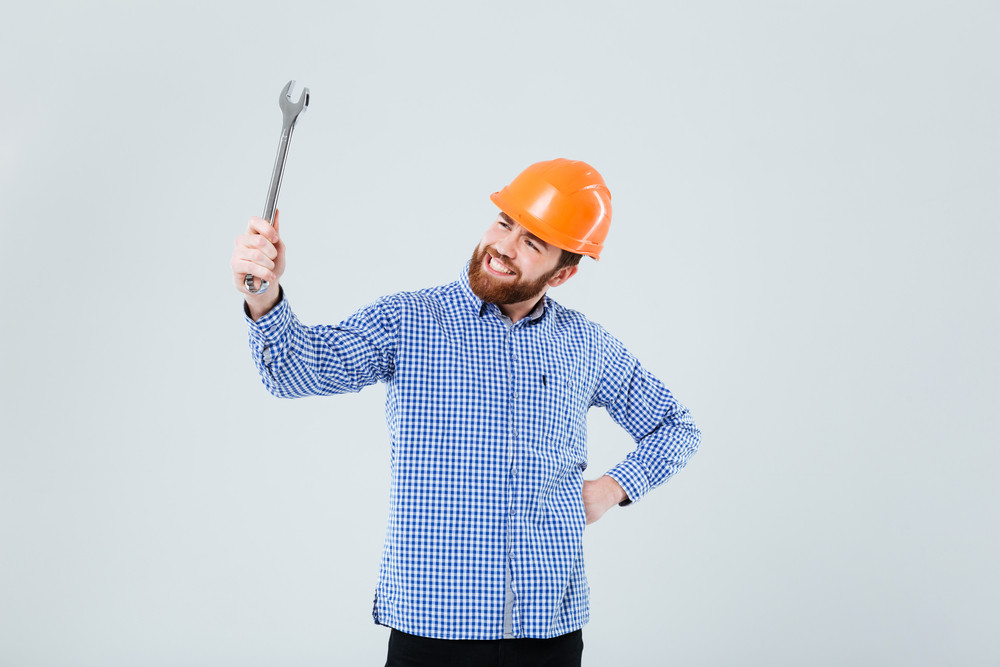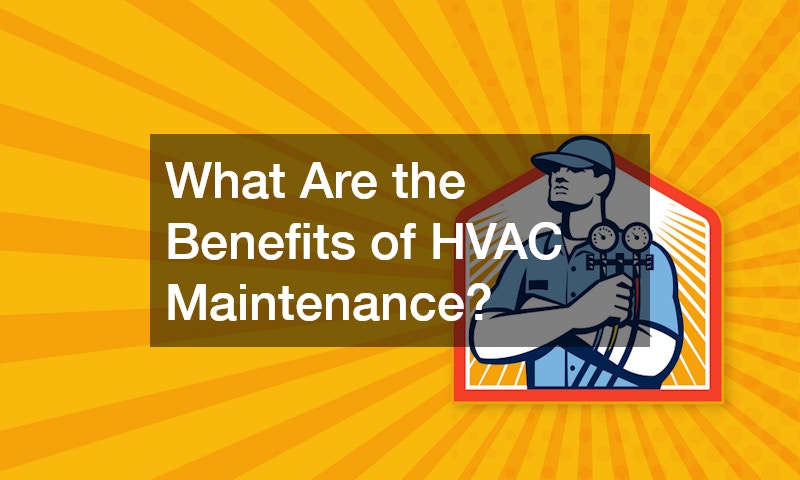Is your HVAC system on its last legs? Knowing when to replace your HVAC system can save you money and headaches in the long run. In this comprehensive guide, we will outline ten key signs that indicate it’s time to upgrade your HVAC system. From rising energy bills to poor indoor air quality, we will cover everything you need to know to make an informed decision. Read on to learn more about our HVAC advice and when to replace your HVAC system.
Age of Your HVAC System

One of the most telling signs that it’s time to replace your HVAC system is its age. On average, HVAC systems last between 10-15 years. If your system is approaching or exceeding this age range, it may be time for a replacement. Older systems are often less energy-efficient and more prone to breakdowns, leading to higher energy bills and repair costs.
When considering the age of your HVAC system, it’s important to factor in how well-maintained it has been over the years. Regular maintenance can extend the lifespan of your system, but even with proper care, all systems have a finite lifespan. If your system is reaching the end of its expected lifespan, it’s worth looking into replacing it to avoid costly repairs down the line.
Consulting with an AC company or HVAC professional for HVAC advice can provide valuable insight into the condition of your system and whether it’s time for a replacement. They can assess the age, efficiency, and overall performance of your HVAC system to help you make an informed decision.
Rising Energy Bills
Are your energy bills on the rise? This could be a sign that your HVAC system is no longer operating efficiently. As systems age, they often become less energy-efficient, leading to increased energy consumption and higher bills. If you’ve noticed a significant spike in your energy costs, it may be time to consider replacing your HVAC system.
Inefficient HVAC systems not only drive up energy bills but also contribute to carbon emissions and environmental impact. By upgrading to a more energy-efficient system, you can reduce your carbon footprint and save money on your monthly utility bills. Consulting with a plumbing repair or HVAC company can help you select a system that meets your energy efficiency needs.
When evaluating your rising energy bills, consider the age and condition of your HVAC system. If your system is old and inefficient, investing in a new system can lead to long-term cost savings and energy efficiency. Our HVAC advice is to look for ENERGY STAR certified systems that offer high efficiency and performance.
Frequent Repairs and Maintenance Costs
Are you constantly calling for HVAC repairs? Frequent breakdowns and repairs can be a sign that your system is on its last legs. As systems age, they become more prone to issues and require more frequent maintenance to keep them running. If you find yourself constantly shelling out money for repairs, it may be more cost-effective to invest in a new HVAC system.
While regular maintenance is essential for the upkeep of your HVAC system, excessive repair costs can quickly add up. Older systems often require more extensive and costly repairs, leading to a drain on your finances. By replacing your system, you can avoid the hassle and expense of constant repairs and enjoy a more efficient and reliable system.
HVAC companies can assess the condition of your system and provide recommendations for repair or replacement. They can help you weigh the cost of ongoing repairs against the benefits of investing in a new system. By considering the long-term costs and benefits with our HVAC advice, you can make an informed decision that is best for your budget and comfort.
Uneven Heating and Cooling

Do you struggle with uneven heating and cooling in your home? Uneven temperature distribution can be a sign of an inefficient HVAC system. As systems age, they may struggle to maintain consistent temperatures throughout your home, leading to hot and cold spots. If you find yourself constantly adjusting the thermostat to compensate for uneven heating and cooling, it may be time for a new system.
A local HVAC contractor can assess the airflow and distribution of your system to determine the root cause of uneven heating and cooling. They can recommend solutions, such as upgrading to a new system with improved performance and even temperature distribution. By addressing the issue proactively, you can enjoy a more comfortable and consistent indoor environment.
When evaluating the performance of your HVAC system, pay attention to how well it maintains temperature consistency in different areas of your home. If you notice wide temperature variations or struggles to maintain a comfortable temperature, it may be a sign that your system is on its last legs. Upgrading to a new system can improve comfort and energy efficiency.
Excessive Noise or Strange Sounds
Is your HVAC system making strange noises? Loud or unusual sounds coming from your system can indicate underlying issues with its components. From banging and clanging to hissing and whistling, unusual noises can be a sign that your system is struggling to operate efficiently. If you notice these sounds, it’s important to address them promptly to prevent further damage.
Local plumbing companies can inspect your HVAC system and identify the source of the strange sounds. Common culprits include loose parts, worn-out components, or issues with the blower motor. Ignoring these noises can lead to more extensive damage and costly repairs down the line. By addressing the issue early on, you can prevent further damage and ensure your system operates smoothly.
HVAC advice recommends scheduling regular maintenance and tune-ups to keep your system running quietly and efficiently. By addressing any strange sounds or noises promptly, you can catch potential issues before they escalate into major repairs. Investing in a new system may be necessary if the strange noises persist despite repairs and maintenance efforts.
Poor Indoor Air Quality
Do you suffer from allergies or respiratory issues in your home? Poor indoor air quality can exacerbate these issues and impact your overall health and well-being. HVAC systems play a crucial role in maintaining indoor air quality by circulating and filtering air. If you notice dust, allergens, or odors lingering in your home, it may be a sign that your HVAC system is due for an upgrade.
A plumbing expert can assess the air quality in your home and recommend solutions to improve indoor air quality. Upgrading to a new HVAC system with advanced air filtration and purification features can help remove contaminants and improve air quality. By investing in a system that prioritizes indoor air quality, you can create a healthier and more comfortable living environment.
HVAC advice emphasizes the importance of regular filter changes and maintenance to keep your system running efficiently and maintain indoor air quality. If you notice persistent indoor air quality issues despite maintenance efforts, it may be time to consider a new system that can offer better filtration and ventilation. Consult with a local HVAC contractor to explore your options for improving indoor air quality.
HVAC System Running Constantly

Is your HVAC system running constantly to maintain a comfortable temperature in your home? Overworked systems often struggle to keep up with demand, leading to continuous operation and increased energy consumption. If you find that your system is running non-stop, it may be a sign that it’s time for a replacement.
A local plumber can assess the performance of your HVAC system and determine why it is running constantly. Common issues that can cause this include undersized equipment, improper installation, or a failing thermostat. By addressing the root cause of the issue, you can prevent further strain on your system and improve its efficiency.
HVAC advice recommends upgrading to a properly sized and energy-efficient system to avoid continuous operation and high energy bills. Newer systems are designed to provide precise and consistent heating and cooling while minimizing energy consumption. By investing in a new system, you can enjoy improved performance and lower energy costs.
Your Home Renovation Plans
Are you planning a home renovation project? Upgrading your HVAC system during a renovation can be a smart investment that enhances the value and comfort of your home. HVAC systems are essential components of your home’s infrastructure and play a vital role in maintaining a comfortable indoor environment. If you’re already investing in a renovation, it may be the perfect time to consider upgrading your HVAC system.
Plumbing services can work with your renovation team to assess your HVAC needs and recommend the best system for your home. By integrating your HVAC upgrade into your renovation plans, you can ensure that your new system meets the requirements of your remodeled space. From ductwork modifications to system upgrades, there are a variety of options to consider during your renovation.
When planning your renovation, consider how your HVAC system fits into the overall project and budget. Upgrading to a new system can enhance the comfort, efficiency, and value of your home while reducing energy costs and environmental impact. Consult with residential plumbing contractors to discuss your HVAC options and ensure that your new system aligns with your renovation goals.
Outdated Technology and Features
Does your HVAC system lack modern features and technology? Outdated systems may struggle to keep up with the demands of modern living and may not offer the energy efficiency or performance you desire. By upgrading to a new system with advanced features and technology, you can enjoy improved comfort, energy efficiency, and control over your indoor environment.
Residential plumbing contractors can assess your current system and recommend modern HVAC solutions that meet your needs. From smart thermostats to zoned heating and cooling systems, there are a variety of features available to enhance your comfort and efficiency. By investing in a system with the latest technology, you can enjoy greater control over your indoor environment and energy usage.
HVAC advice suggests considering the long-term benefits of upgrading to a new system with modern features. While the upfront cost may be higher, the energy savings and performance improvements can pay off in the long run. By working with a knowledgeable HVAC professional, you can explore the latest innovations in heating and cooling technology and choose a system that meets your needs.
Environmental Impact and Energy Efficiency
Do you want to reduce your carbon footprint and energy consumption? Upgrading to an energy-efficient HVAC system can help you achieve your sustainability goals while saving money on your utility bills. Newer systems are designed to operate more efficiently and use less energy, reducing your environmental impact and lowering your energy costs.
Plumbing service repair technicians can evaluate your current system and recommend energy-efficient options that align with your goals. From high-efficiency furnaces to eco-friendly refrigerants, there are a variety of solutions available to reduce your energy consumption and environmental impact. By investing in a green HVAC system, you can contribute to a more sustainable future while enjoying cost savings.
When considering the environmental impact of your HVAC system, look for ENERGY STAR certified systems that meet strict energy efficiency guidelines. These systems are proven to reduce energy consumption and greenhouse gas emissions, leading to a smaller carbon footprint. By upgrading to an energy-efficient system, you can make a positive impact on the environment and your wallet.
Refrigerant Type and Phase-Outs

Is your HVAC system using outdated refrigerants that are being phased out? The phase-out of certain refrigerants, such as R-22, can impact the performance and availability of your system. If your system relies on a phased-out refrigerant, it may be more cost-effective to replace it with a newer system that uses environmentally friendly and compliant refrigerants.
HVAC advice recommends consulting with a professional to determine the refrigerant type used in your system and the implications of a phase-out. Newer systems use alternative refrigerants that are more environmentally friendly and comply with current regulations. By upgrading to a system with compliant refrigerants, you can avoid the hassle and expense of retrofitting or replacing outdated systems.
When considering the refrigerant type and phase-outs, consider the long-term implications for your HVAC system. By investing in a new system with compliant refrigerants, you can future-proof your system and avoid disruptions caused by refrigerant phase-outs. Consult with HVAC professionals to explore your options for upgrading to a system that meets current environmental standards.
Knowing when to replace your HVAC system is essential for maintaining comfort, efficiency, and air quality in your home. By keeping an eye out for signs such as rising energy bills, frequent repairs, and poor indoor air quality, you can determine when it’s time for an upgrade. Consulting with HVAC professionals and local contractors can provide valuable insight into the condition of your system and help you select the best solution for your needs.



